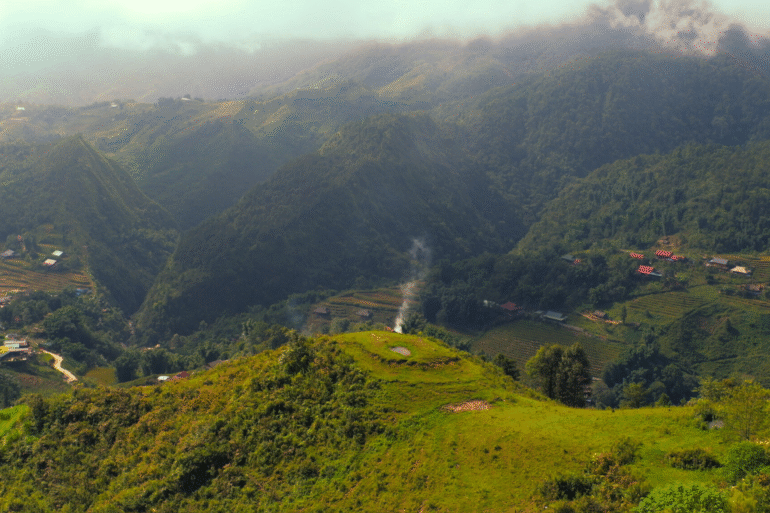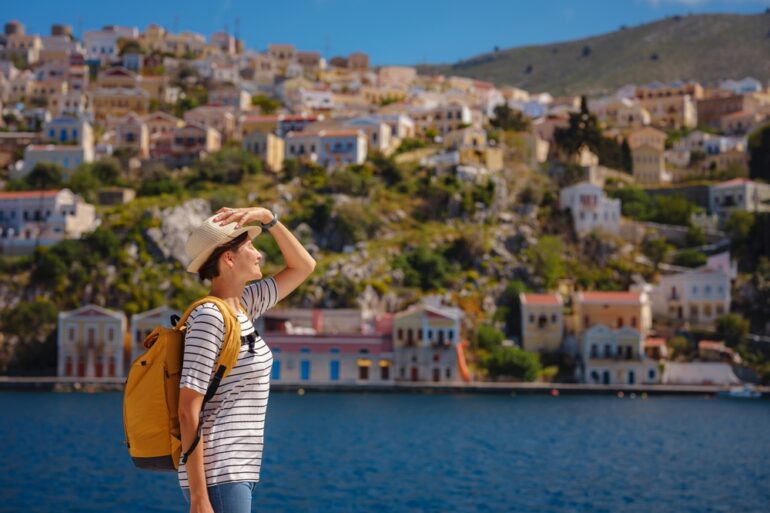Researchers from the Edith Cowan University in Australia say positive tourist experiences can help you live longer.
Worried about aging? Still trying to find the right skincare regimen to keep wrinkles and sagging skin at bay? Well, we have some great news: Apparently, traveling can not only make you feel good—it can also make you literally look good and even help you prolong your life.
According to a study by researchers from Edith Cowan University (ECU) in Australia, travel may be the best way to defy premature aging. The multi-year theoretical study, titled “The Principle of Entropy Increase: A Novel View of How Tourism Influences Human Health,” made use of empirical data and was published in the Journal of Travel Research earlier this year.
“Aging, as a process, is irreversible. While it can’t be stopped, it can be slowed down,” the study’s lead researcher Fangli Hu says. “Tourism isn’t just about leisure and recreation. It could also contribute to people’s physical and mental health.”

This is the first time an interdisciplinary study has applied the theory of entropy to tourism. The concept of entropy is classified as the “general trend of the universe towards death and disorder.” Looking at tourism through the perspective of entropy reveals how positive experiences can slow down aging and enhance health.
The researchers note many of the lifestyle practices espoused by medical and mental health experts are intrinsic to travel. They say positive tourist experiences like meeting new people, sleeping better, experiencing new things, immersing yourself in a novel destination, and taking part in relaxing activities like yoga and spa treatments could help slow down the aging process and help you live longer. This is great news on so many levels!
Environments, especially beautiful landscapes like forests or beaches, can help us reduce stress and boost our mental well-being and promote physical activity.
“Environments, especially beautiful landscapes like forests or beaches, can help us reduce stress and boost our mental well-being and promote physical activity,” Hu adds. “Exposure to other tourists, locals or even animals can improve our mood and enhance cognitive function. And travel can lead to healthy eating.”
These contexts may also trigger an adaptive immune system response, helping improve the body’s ability to defend itself against external threats. “Put simply, the self-defense system becomes more resilient. Hormones conducive to tissue repair and regeneration may be released and promote the self-healing system’s functioning,” Hu continues.
Moreover, leisure travel could help alleviate chronic stress, as engaging in recreation potentially releases tension and fatigue in the muscles and joints, the researchers add. This relief helps maintain the body’s metabolic balance and increases the anti–wear-and-tear system’s effectiveness. Organs and tissues can then remain in what is called a low-entropy state.


Travel encompasses physical activities such as hiking, climbing, cycling or, at the very least, simply walking more steps than you normally would. With this, travel can also boost metabolism, energy expenditure, and material transformation, all of which help coordinate our body’s self-organizing systems. Moderate exercise is proven to be beneficial to the bones, muscles, and joints.
“Participating in these activities could enhance the body’s immune function and self-defense capabilities, bolstering its hardiness to external risks,” Hu explains. “Physical exercise may also improve blood circulation, expedite nutrient transport, and aid waste elimination to collectively maintain an active self-healing system.”
But like all other things, there is also a flip side. The research also mentions that traveling could expose you to health challenges such as infectious diseases, accidents, injuries, and water and food safety issues. The study also includes wildlife encounters on its list of potential threats.


Travelers, the researchers advise, should then do their best to avoid the triggers that could lead to negative—even dangerous—outcomes.
“Some places can make people with anxiety or depression feel even more uneasy. All this negativity may not be beneficial,” Hu says. “So the type of travel depends on each person’s situation, their needs and their health status.”
She shares that future studies will focus on how travel can positively impact people with chronic illnesses such as dementia. The researchers also hope to expand this fledgling field that can, fingers crossed, lead to more vacation days and fewer sick days.
“The intersection of tourism and health is a very new and promising research area,” Hu adds. “We want to comprehensively explain why tourism can have both a positive and negative impact on health.”
In an article in The Washington Post, Jie Chen, director of the University of Maryland’s Center on Aging, concurs with the findings and recognizes the link between travel and aging gracefully. “Overall, the study is promoting the spirit of healthy aging,” she said. “Where you are, the environment, the mental and the physical — it’s the whole package.”








